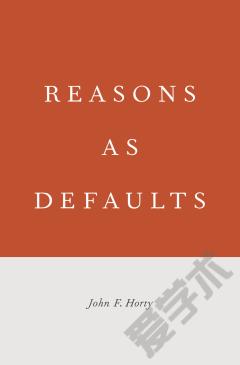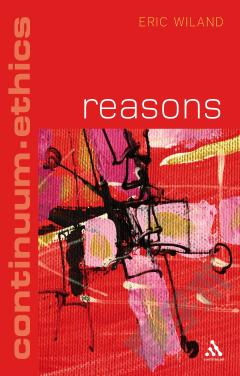Reasons as Defaults
Introduction I Default logic 1 A Primer on Default Logic 1.1 Basic concepts 1.1.1 Default rules 1.1.2 Priority relations 1.1.3 Theories and scenarios 1.2 Central definitions 1.2.1 Binding defaults 1.2.2 Proper scenarios and extensions 1.3 Extensions and conclusions 1.3.1 Theories with multiple extensions 1.3.2 Theories without extensions 2 From Defaults to Reasons 2.1 An austere theory of reasons 2.2 Developing the theory 2.2.1 Conflict, strength, and defeat 2.2.2 Reasons and enablers 2.2.3 Reason amalgamation II Deontic Logic 3 Reasons and Oughts 3.1 The two logics 3.1.1 Simple oughts 3.1.2 Conditional oughts 3.1.3 Some history 3.2 Properties of the logics 4 Moral Conflicts 4.1 Logical objections 4.1.1 Agglomeration 4.1.2 Other logical objections 4.2 Conceptual objections 4.3 Objections based on reasons as moral forces III Some Elaborations 5 Variable Priorities and Exclusion 5.1 Variable priority default theories 5.1.1 The definition 5.1.2 Some examples 5.2 Exclusionary default theories 5.2.1 The definition 5.2.2 Some examples 5.3 Discussion 5.3.1 Downward closure of exclusion 5.3.2 Exclusion by weaker defaults 5.3.3 Excluders, intensifiers, and attenuators 6 Particularism 6.1 Dancy's argument 6.2 Evaluating the argument 6.3 Discussion 6.3.1 Pragmatic considerations 6.3.2 Borrowing a book 6.3.3 Moderate particularism IV Some complications 7 Skepticism and Floating Conclusions 7.1 Floating conclusions 7.1.1 Arguments and paths 7.1.2 Two versions of skepticism 7.2 The problem with floating conclusions 7.2.1 An example 7.2.2 Objections to the example 7.3 Discussion 7.3.1 Other examples 7.3.2 Skepticism 8 Problems with Priorities 8.1 Refining the concept of defeat 8.2 Controlling the order of application 8.3 Discussion 8.3.1 Inappropriate equilibria 8.3.2 Other orderings 8.3.3 Reinstatement V Appendices A Notes on the default logics A.1 Proper scenarios A.2 Some observations on defeat A.3 Normal default theories B Notes on the deontic logics B.1 A comparison with van Fraassen's logic B.2 A comparison with standard deontic logic
{{comment.content}}








 京公网安备 11010802027623号
京公网安备 11010802027623号